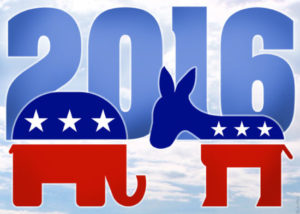The 2016 election will be remembered for many things.
It is widely thought to be one of the most contentious, negative and controversial elections we have ever had. No matter the outcome, political scientists will be dissecting what transpired for decades.

- Tweeting at 3 a.m. is never a good idea – As we learned in the case of Donald Trump following the first presidential debate, acting on a visceral, emotional response to an event can come back to harm your message. Once something is out in the cyber world, it is there forever. While it’s important to react quickly to controversy, it is also good to take a step back and think before you do so. It also appears desperate and neurotic to be communicating with the world in the wee hours of the morning.
- Take advantage of free media – Why spend money on advertising when you can get the media to cover you for free? Donald Trump used this to great advantage during the Republican primary. He made himself available to many media outlets, giving them fresh content to use on a regular basis. The fact that he was the one available instead of a surrogate made the media more likely to accept the interview. Also, doing interviews over the phone allowed Trump to accommodate a large number of outlets and widen the reach of his message without spending valuable money and time. It is estimated Trump received $2 billion in free media attention during the campaign.
- If you say something often enough, some people will believe it – Labels can be powerful. There is no evidence to indicate that Jeb Bush lacks stamina or wasn’t willing to campaign just as hard as anyone else. But Donald Trump constantly telling people that Bush had “low energy” effectively reduced enthusiasm for Bush’s campaign. This is why messaging is so important to clients. Choose carefully the words you use to present your client to the world.
- Apologizing is essential – This much media scrutiny is bound to lead to mistakes. Both candidates could have done a better job addressing misstatements. Donald Trump often took an aggressive approach. At times he flat out denied statements despite the fact that they were recorded on. Hillary Clinton never truly apologized for calling a large group of voters “a basket of deplorables.” Instead she admitted the percentage was off. Sometimes admitting a misstatement and apologizing can make a controversy die down faster than trying to dodge or deny it.
- Saying nothing can be effective – Just this week, the fact that Hillary Clinton didn’t address the FBI’s decision to uphold their July findings meant she got to turn the page that more quickly to other topics in the crucial final hours of the campaign. If she had attacked FBI Director James Comey or said something provocative, it would have extended the conversation about her emails, a topic which was shown to erode her support.


